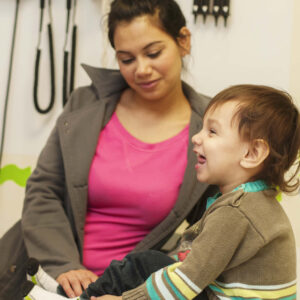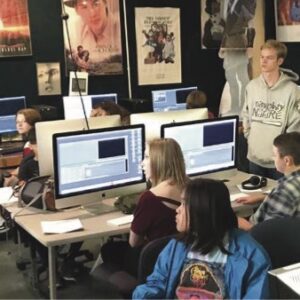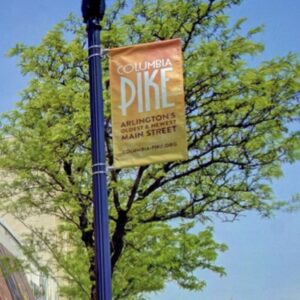Our Focus
The Washington Forrest Foundation considers our grant recipients partners in a shared vision of improving the lives of Arlingtonians. We undertake a multi-faceted approach that aligns with the ideals we value most:

 Supporting our Arlington community to address the challenges facing low-income youth and their families.
Supporting our Arlington community to address the challenges facing low-income youth and their families. Working in relationship with our nonprofit partners, and their staff, who have committed to strategic, innovative and tireless work to support the most vulnerable in Arlington.
Working in relationship with our nonprofit partners, and their staff, who have committed to strategic, innovative and tireless work to support the most vulnerable in Arlington. Funding programs and organizations that facilitate economic and community development, including food access, housing and housing support, aging in place, “safety net” support, and workforce development and jobs creation, including leadership efforts which champion Arlington neighborhoods where economic access, mobility and growth is impeded.
Funding programs and organizations that facilitate economic and community development, including food access, housing and housing support, aging in place, “safety net” support, and workforce development and jobs creation, including leadership efforts which champion Arlington neighborhoods where economic access, mobility and growth is impeded.

 Guiding and supporting our community to ensure that everyone has access to health and mental health.
Guiding and supporting our community to ensure that everyone has access to health and mental health. Promoting equitable access to education, particularly programs or organizations that provide greater opportunities to youth and families who otherwise might not have them.
Promoting equitable access to education, particularly programs or organizations that provide greater opportunities to youth and families who otherwise might not have them. We support programs that strengthen and complement existing academic offerings, offer creative ways for learning that foster social-emotional and academic confidence, and those that support families and their students in wrap-around support to ensure next generation academic and economic success and advancement.
We support programs that strengthen and complement existing academic offerings, offer creative ways for learning that foster social-emotional and academic confidence, and those that support families and their students in wrap-around support to ensure next generation academic and economic success and advancement.

 Honoring our history related to our founding board member, Benjamin M. Smith, and his involvement as an early Arlington County Board member, Arlington School Supervisor and Arlington Hospital founder and board member and his values of faith, and in community, education, health, and housing.
Honoring our history related to our founding board member, Benjamin M. Smith, and his involvement as an early Arlington County Board member, Arlington School Supervisor and Arlington Hospital founder and board member and his values of faith, and in community, education, health, and housing. Focusing on the communities, schools and neighborhoods along Columbia Pike, Four Mile Run, Green Valley and other areas in Arlington where our family has been involved since the late 19th century, but where we also see the continued economic need and challenges to get ahead in life remain prevalent.
Focusing on the communities, schools and neighborhoods along Columbia Pike, Four Mile Run, Green Valley and other areas in Arlington where our family has been involved since the late 19th century, but where we also see the continued economic need and challenges to get ahead in life remain prevalent.
Safety Net Programs
- Access to food and food assistance, particularly food for children, youth and families.
- Emergency support for utilities, rent and basic needs.
- Housing and support services for families, seniors, veterans, those experiencing homelessness, victims of domestic abuse and substance use disorder.
- Access to basic health and mental health services for all members of the community including children, youth, seniors, those with mental or long-term disabilities, and those with substance use disorders.
- Aging in place and senior support services.
Education
- Access to high quality education from preschool to workforce education, particularly out-of-school time and summer programs.
- STEAM and other programs which address gaps in education, such as in literacy, workforce, math and the arts, that support all learning styles and levels.
- Investment in educational environments, including outdoor classrooms, that support learning in alternative settings.
Community Development
- Support for community and leadership efforts which strengthen Arlington neighborhoods, bring confidence and resilience to youth, and expand economic mobility.
- Grassroots organizations that consistently address immediate needs and emerging issues affecting diverse constituencies.